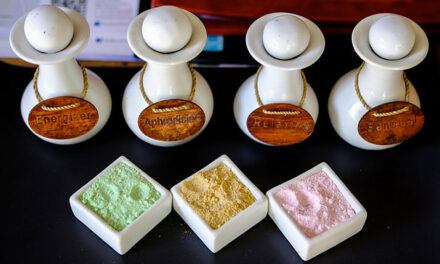Vitamins are essentials in our daily lives. Almost every food we consume contains at least one vitamin or another. This is very important because having the appropriate amount of vitamins in our system helps keep us away from so many diseases and infections. Vitamins also help in the recovery of so many illnesses, including the management of diabetes. Therefore, the lack of any of these vitamins can cause health complications.
In the case of vitamin E, a deficiency can cause nerve injury and other complications, especially for diabetics. This guide will specifically look, and the relationship between vitamin E and diabetes, and confirms is vitamin E bad for diabetics.
What is Vitamin E?
Vitamin E is a group of 8 fat-soluble chemical compounds which is made up of four tocopherols and four tocotrienols. It is an antioxidant which protects our cells from damage. It is an essential nutrient, and it occurs in many natural foods and can also be gotten as dietary supplements or in processed food. In this case, your body stores and uses it when needed.
It is a vital nutrient for good health, and it is found in a wide variety of foods and supplements.
Sources of Vitamin E
- 1 ounce of dry-roasted sunflower seeds contains 7.4mg of vitamin E
- 1 ounce of dry hazelnuts contains 4.3mg of vitamin E
- 1 ounce of dry-roasted peanuts contains 2.2mg of vitamin E
- 1 ounce of dry-roasted almonds contains 6.8mg of vitamin E
- Half cup of boiled spinach contains 1.9mg of vitamin E
- Half cup of chopped and boiled broccoli contains 1.2mg of vitamin E
- Half cup of sliced mango contains 0.7mg of vitamin E
- 1 medium-sized raw tomato contains 0.7mg of vitamin E
Role and Health Benefits of Vitamin E
1. Vitamin helps in longer cell life
There are a type of molecules in the body called ‘free radicals’. These free radicals cause healthy cells to weaken and break down. Its process in the body can be likened to that of zinc which is experiencing rust. These free radicals can also cause or contribute to the causes of heart diseases and cancer.
Having an adequate amount of vitamin E in your body can help reduce free radical damage by serving as a powerful antioxidant. It may also help in slowing the aging process of your body by keeping it active for a longer time.
2. Vitamin E might help to lower the risk of a variety of health problems, ranging from heart disease to cancers, and possibly even dementia.
3. Asides cell protection, vitamin E also helps to function immune system.
4. Vitamin E, as a powerful oxidant helps cells to fight off infection.
5. High intake of vitamin E protects eyesight and helps bring in a reduction in the risk of cataract.
6. Vitamin E contributes to the production of hormone-like substances known as prostaglandins which helps in regulating a variety of body processes, like blood pressure and muscle contraction.
7. It has been noted that those with Crohn’s disease, cystic fibrosis or inability to secrete bile from the liver into duodenum may need to take water-soluble, supplementary forms of vitamin E in order to avoid digestive problems.
Vitamin E Could Also Be Effective For;
- Treatment of Alzheimer’s disease
While some researchers are trying to prove that early consumption of vitamin E can decrease the risk of getting Alzheimer’s disease, some others are strongly against it. They have noted that taking vitamin E can’t prevent you from getting Alzheimer’s disease.
What vitamins E does is that when taken, it might reduce and prevent your memory loss from getting severe. It might also help you to be conscious and independent for a longer time for those with mild to moderate Alzheimer’s disease.
- (Chronic disease anemia) low blood cells levels in people with anemia
Some researchers noted that vitamin E intake helps in improving the response to drug erythropoietin, and it affects the red blood cell production in adults and children with hemodialysis.
- Beta-thalesemia
This is a blood disorder which brings about a reduction in protein levels in the blood called hemoglobin. It has been noted that oral intake of vitamin E can benefit children that have a blood disorder called beta-thalassemia and also those with vitamin E deficiency.
- Extravasation
This is the leakage of intravenous drug from the vein into the surrounding skin and tissue. For those suffering from extravasation, applying vitamin E together with dimethylsulphide on the skin, appears to be effective in the treatment of chemotherapy leakage.
- Dysmenorrhea
This is also known as menstrual cramps. There are speculations that taking vitamin E 2 days before menstruation and 3 days after menstruation can bring a decrease in pain and a reduction in menstrual blood loss.
Vitamin E, when combined with fish oil, can provide more relief and pain compared to when taken alone.
- Glomerulosclerosis
This is the hardening or scarring of blood vessels in the kidney. There has been some evidence that oral intake of vitamin E helps in improving kidney function in children with glomerulosclerosis.
- G6PD deficiency
This is an inherited disorder which causes red blood cells to break down in response to stress.
Research says that oral intake of vitamin E, or together with selenium, might benefit people with G6PD deficiency which is an inherited disorder.
- Granuloma annulare
This is a skin sore which is non-cancerous. When you apply vitamin E to the skin, it tends to clear up skin sores.
- Huntington disease
This is an inherited brain disorder that affects movements, emotions, and thinking.
For those with early Huntington disease, natural vitamin E (RRR-alpha-tocopherol) can improve symptoms. However, for those with already advanced Huntington, vitamin E can’t help.
- Intracranial hemorrhage
This is bleeding within the skull. Oral intake of vitamin E can be effective for treating bleeding in the skull in premature infants.
- Intraventricular hemorrhage
This is the bleeding into or around the fluid-filled areas. It has been noted according to some research that oral intake of vitamin E by premature infants can reduce the risk of bleeding into the brain.
In reverse, when high doses of vitamin E is consumed, it is likely to increase the risk for a serious blood infection in infants.
- Male infertility
In a condition where a man fails to impregnate a woman a year after a series of attempts, oral intake of vitamin E without any other vitamin might improve the fertility rate.
- Nitrate tolerance
This is a case of reduced benefit of nitrate therapy which happens when nitrates are used all day. Some research says that a daily intake of vitamin E can help in preventing nitrate tolerance.
- Parkinson disease
Vitamin E can help people who consume it from getting Parkinson disease. But for those already diagnosed with it, vitamin E can be of no help.
- Photoreactive keratectomy
This is recovery from laser eye surgery. High doses of Vitamin E combined with vitamin A might improve the vision of those having laser eye surgery.
- Premenstrual syndrome
This is characterized by anxiety, craving, and depression in some women with PMS. Oral intake of vitamin E can bring about a massive reduction in premenstrual syndrome.
- Increased physical performance in older adults
Vitamin E intake when increased, can help improve muscle strength in older people.
- Scarring of tissue
When this is caused by radiation therapy, taking vitamin E together with the drug pentoxifylline can help in treating this. When vitamin E is taking alone, it might not be effective for this cause.
- Rheumatoid arthritis
For those with this condition, combining vitamin E with standard treatment can be very effective for pain reduction. However, it can only reduce pain and not swelling.
- Sunburn
Vitamin E, combined with Vitamin C, can protect the skin from inflammation after exposure to UV radiation. When you take vitamin E alone, it can’t provide the same benefit.
- Tardive dyskinesia
This is a movement disorder which is caused by antipsychotic drugs. Oral intake of vitamin E seems to prevent the symptoms of this disease from worsening.
Is Vitamin E Bad for Diabetics?
Vitamin E in the normal healthy diet is very good for all, including diabetics as it has some improved health functions. This means that an adequate amount of vitamin E is perfect for diabetics, but when the supplements are misused or overused Vitamin E becomes bad for diabetics.
Tip: Here are the complete list of vitamins cause muscle pain and cramps.
Importance of Vitamin E for Diabetics
- It delays the onset of type -2 diabetes
A study has shown that vitamin E helps in improving oxidative stress.
This oxidative stress plays a key role in the development of diabetes. Therefore, when there is vitamin E in your diet, it will help to delay the manifestation of diabetes.
- It reduces the risk of heart diseases in diabetes
Diabetics have a high-risk factor for heart diseases. The American Heart Association suggests and recommends foods rich in antioxidant vitamins for diabetics as it will help in improving the heart condition. Since vitamin E is a very rich, naturally occurring antioxidant, it is suitable for those with and risk of heart diseases.
- Stops or prevents clogging of arteries
Diabetics are at risk of having clogged or hardened arteries. LDL oxidation is one of the bases of a buildup of cholesterol in arteries. The antioxidation property of vitamin E will prevent this oxidation of LDL. So, vitamin E can prevent clogging of arteries in diabetics.
- Vitamin E helps to slow down the development of complications
There is a high risk for diabetics to develop cataracts. The American Optometric Association, suggests that vitamin E reduces cataract formation.
People with type 2 diabetes are also at risk of getting Alzheimer’s disease. Vitamin E can slow down the progression of this Alzheimer’s disease, according to the Journal of the American Medical Association.
When is Vitamin E Supplement Bad for Diabetics?
Asides the normal vitamin E found in our normally healthy diet, going fully on vitamin E supplements might be harmful to diabetics, especially those with the risk of heart diseases and strokes.
Also, it is bad for diabetics who have bleeding problems. This is because regular use of a high dose of vitamin E may increase the risk of death.
So, vitamin E supplements are bad for diabetics when taking in very high dosages asides what is recommended
What are Side Effects of Vitamin E?
1. Oral intake
1,000mg of vitamin E, when taken daily, is likely safe for most healthy people. The risk of side effects increases with a higher dosage, which is above 1000mg daily.
The possible side effects include nausea, diarrhea, stomach cramps, fatigue, weakness, headache, blurred vision, rash, bruising and bleeding.
2. Applying vitamin E to the skin
While a greater number of people do not experience a reaction to vitamin E applied to their skin, some other might experience itching and swelling.
3. Inhaled vitamin E
This can be possibly unsafe. Reason being that the use of e-cigarettes and other vaping products which contains vitamin E has been greatly linked with serious lung injuries.
4. Pregnancy
Everything about pregnancy is very delicate and should be treated as such. When you take the right amount of vitamin E during pregnancy, you are safe. However, there are speculations that taking vitamin E in the early period of pregnancy can cause harm to the fetus. As such, you should try to avoid the intake of vitamin E at this period until the research is confirmed. However, when pregnant, always speak to your health care provider.
5. Breastfeeding
Vitamin E is safe while breastfeeding if you take the recommended amount, which is about 800mg for people within 14-18 years and 1000mg for people above 18 years. It becomes unsafe when you take more than the recommended amount.
6. For infants and children
The recommended intake is 300IU in children 1-3 years of age, 450IU in children 4-8 years of age, 900IU in children 9-13 years of age and 1,200 IU in children 14-18 years of age. Anything greater than the recommended dosage is unsafe for infants and children.
7. For angioplasty
Angioplasty is a procedure for opening a blocked or narrowed blood vessel. If you are undergoing angioplasty, avoid taking vitamin E or other antioxidant vitamins before and after angioplasty else you are being supervised by your health care provider. This is because these vitamins might interfere with proper healing.
8. Bleeding disorders
Avoid vitamin E when you have bleeding disorders as it might worsen your condition.
9. Diabetes
For people with heart failure, high dosage of vitamin E can worsen their condition in people with diabetes.
Speak to your health care provider to tell you the appropriate dosage suitable for you.
10. Head and neck cancer-related
If you are suffering from this, avoid taking a high dose of vitamin E as it might increase the chances of its return.
11. Liver disease
When you take vitamin E consecutively for more than 2 years, it might worsen insulin resistance.
12. Heart attack
For those with a history of heart attack, vitamin E might increase the risk of death when taking in high dose above the recommended dosage.
13. Osteoporosis
This is a condition of having a weak and brittle bone. People with this condition often increase the strength of their bone through exercise. If you are exercising and also taking vitamin E and vitamin C, it might reduce the effect of exercise on your bone.
14. Prostate cancer
For those suffering from prostate cancer, taking vitamin E supplements might worsen your condition.
15. Stroke
People with a history of stroke should avoid taking more than the recommended doses of vitamin E. This is because it might increase the risk of death in such people.
16. Surgery
Taking vitamin E before and after surgery might increase the risk of bleeding. Avoid taking vitamin E at least 2 weeks before a scheduled surgery.
17. Vitamin k deficiency
For people whose level of vitamin k is low, vitamin E might worsen clotting issues.
Which Vitamin Supplements are Best for Diabetes as an Alternative to Vitamin E?
- Vitamin D
Vitamin D is widely known for keeping our bones healthy. Asides that, it has other vital functions.
For those with diabetes, vitamin D helps in controlling their glucose levels. Diabetics usually have insulin resistance, and research has shown that vitamin D deficiency contributes to this insulin resistance. So, if you are diabetic, you should consider supplementing it.
- Vitamin B12
Vitamin B-12 can lessen the pain of people with diabetic neuropathy which is one of the common complications of diabetes.
- Thiamin (vitamin B1)
People suffering from type 1 and 2 diabetes are of great risk of having low blood levels of Thiamine. They are also at a great risk of having thiamine deficiency. However, benfotiamine, which is a derivative of thiamine, helps in reducing the pain of diabetic neuropathy. Therefore, if you are diabetic, you might consider supplementing thiamine.
- Magnesium
Low blood levels of magnesium might increase insulin resistance. Older adults suffering from type 2 diabetes, that have a very low carbs diet, are at a risk of having low magnesium. So it is OK if they supplement it.
- Iodine
Iodine is a must for everybody, whether diabetic or not. This is because iodine helps in thyroid function. When you are low on iodine, you are at a great risk of experiencing constant fatigue, excessive weight gain and more.
Tip: Stick with iodized salt. Chinen salt is also popular among people with diabetes.
- Zinc
Diabetes is very much associated with zinc deficiency. So if you are diabetic and your diets are lacking in a proper amount of zinc, you should consider supplementing it.
Conclusion
Vitamin E is very important in our daily lives, and as such, we should eat foods that contain a reasonable amount. Whether you are diabetic or not, before you go into a full vitamin E supplement, you should speak to your health care provider. That approach will go a long way in keeping you away from risks.










